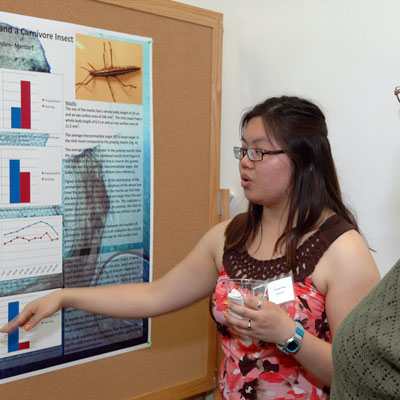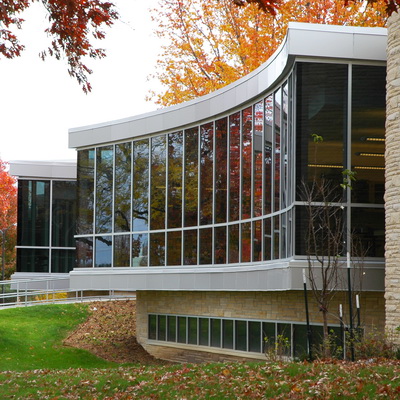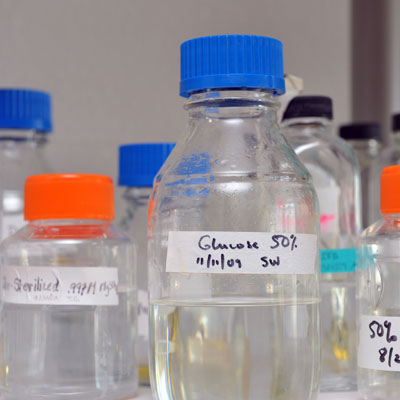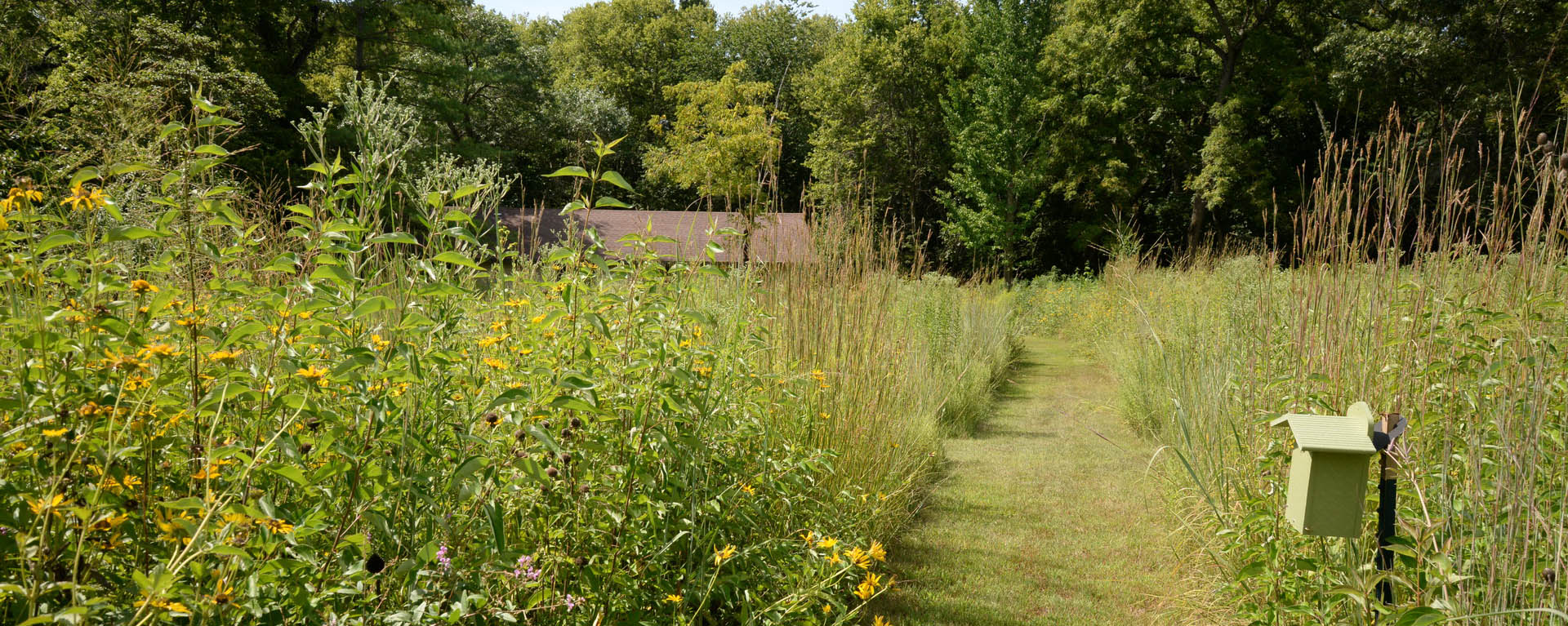
Why study Environmental Biology at Washburn?
Environmental biologists focus at the organismal and environmental system level, and as an environmental biology student at Washburn, you’ll learn with experts in the fields of entomology, herpetology, plant genetics, and conservation. With a faculty mentor in your area of interest, you’ll complete at least one semester of research, which may be lab or field based. Internships also are available with our many partners, including The Topeka Zoo. You’ll graduate with experience and the technical skills and knowledge you need to begin your career.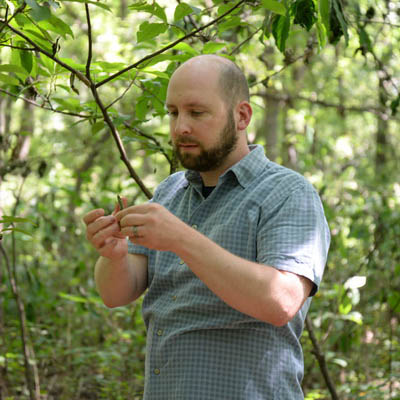
What sets Biology at Washburn apart?
- Learn from field experts not graduate students in small classes that help you thrive.
- Washburn’s Karlyle Woods field station means you can be in the field and close to home. Experiential field work opportunities in other areas also are available for qualified students.
- Biology Department Scholarships are available to incoming and returning majors.
- Find your people on campus with one of four biology student clubs.
- Graduate with research experience guided by a faculty mentor, which could lead to a conference presentation or publication.
Admissions scholarships
Washburn University offers generous scholarships based on your interests, career aspirations, community service and academic success.Biology department scholarships
The biology department offers a variety of scholarships based on academic performance and career pursuits. New and transfer students are eligible. Applications are due early in the spring.- Admissions scholarshipsAdmissions scholarships
- Biology department scholarshipsBiology department scholarships
Tuition and fees
Courses in this program are offered at the Traditional Undergraduate rate.Financial aid
Washburn University offers generous undergraduate financial aid, including scholarships and grants.Tuition waivers
If you don’t currently live in Kansas, learn about our Tuition Waiver programs that may qualify you for in-state tuition.- Tuition and feesTuition and fees
- Financial aidFinancial aid
- Tuition waiversTuition waivers
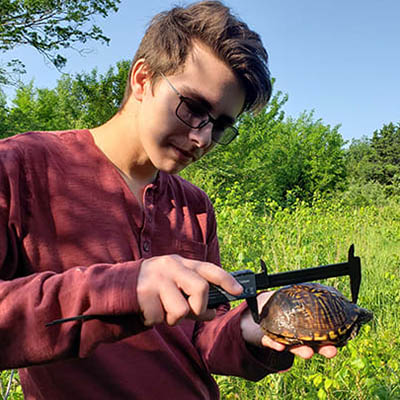
Curious about field work?
Dr. Benjamin Reed and environmental biology students are tracking box turtles in the region. Read more about the project from the Ichabod Magazine.
Degree options:
Bachelor of Science
- University and general education requirements
- 44 credit hours in biology
- 23 credit hours of environmental biology core requirements, plus
- 21 credit hours of biology electives, plus
- 3 credit hours of a quantitative course, plus
- Required 30-hour natural science concentration
- 20 credit hours in one discipline
Bachelor of Arts
- University and general education requirements
- 38 credit hours in biology
- 23 credit hours of environmental biology core requirements, plus
- 15 credit hours of biology electives
- Foreign language competency requirement (see required courses)
The best things you can do to succeed in biology at Washburn are: attend class regularly, complete assignments and develop strong study routines, come to class prepared, and access free tutoring and professor office hours when you have questions.
Washburn Career Engagement offers resume workshops and career fairs to help connect you with opportunities.
Washburn's Biology program offers specialization in:
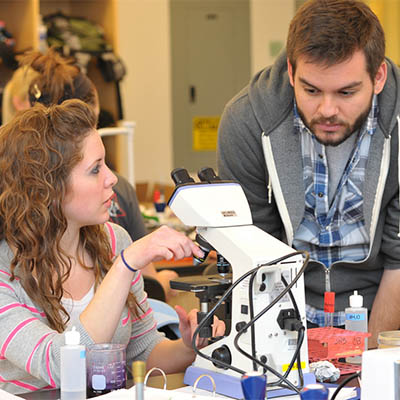
Biology
- This is right for you if you want a strong foundation in biology but aren't ready to choose a specialty area, or want to combine it with another major.
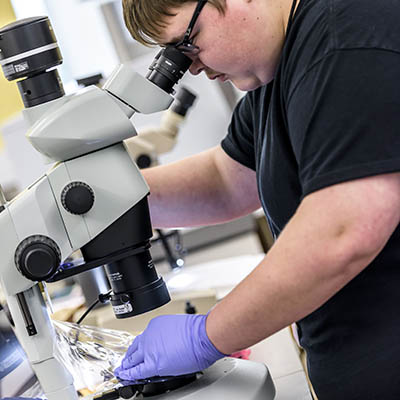
Forensic Biology
- This is right for you if you want to work as part of a crime scene processing team.
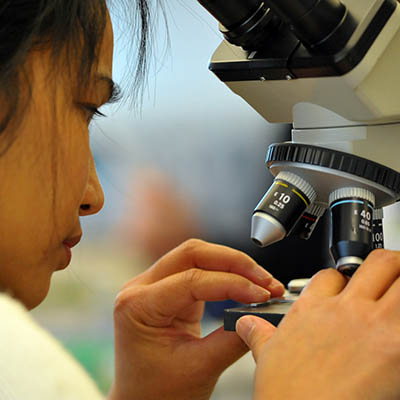
Molecular Biology and Biotechnology
- This is right for you if you know you want to work in biology at the cellular level, in fields such as virology, immunology, and genetics.
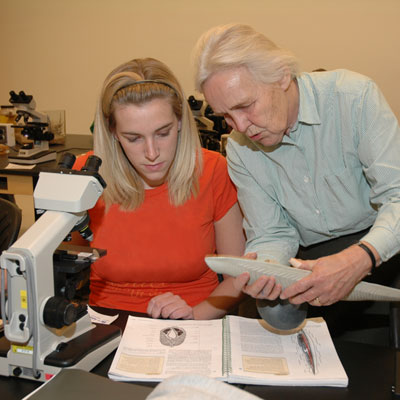
Biology Secondary Education
- This is right for you if you want to teach biology at the middle or high school level.
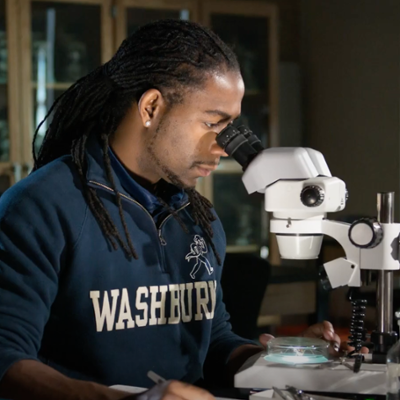
Pre-Health Professions
- A degree to prepare you for dentistry, medical, optometry, pharmacy or veterinary school.
Set for Success
Recent internship sites
Topeka Zoo
Environmental Protection Agency
Kansas Department of Health and Environment
Student/faculty ratio
16:1
Washburn Biology provides
Well-respected program
Research grant writing practice
Lab and field research opportunities
Financial and academic support
Program cost
Courses in this program are offered at the Traditional Undergraduate rate. Students in this program are eligible for scholarships and financial aid.
GET IN TOUCH WITH Department of Biology
Biology Department
Stoffer Science Hall, Room 202
1700 SW College Ave
Topeka, KS 66621
Phone & Email
785.670.2077
biology@washburn.edu


